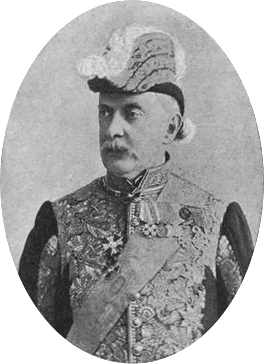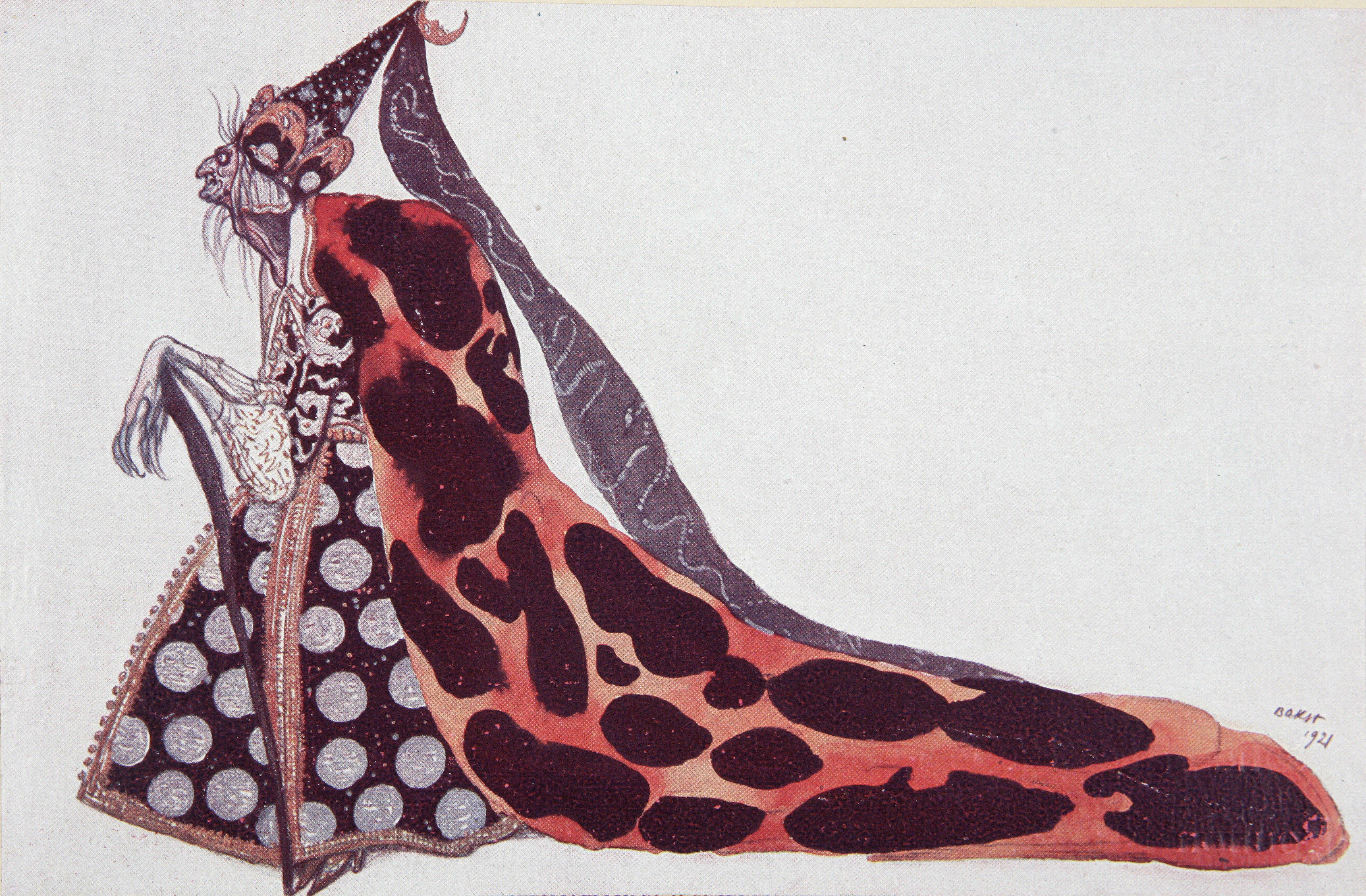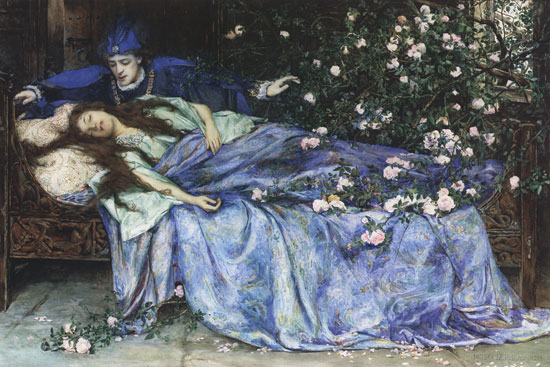|
Ivan Vsevolozhsky
Ivan Alexandrovich Vsevolozhsky (russian: Иван Александрович Всеволожский; 1835–1909) was the Director of the Imperial Theatres in Russia from 1881–98 and director of the Hermitage from 1899 to his death in 1909. Vsevolozhsky ran the Imperial Theatres with a determination for excellence. In 1886, Vsevolozhsky initiated two major reforms for the St. Petersburg Imperial Theatres, namely the relocation of the Imperial Ballet and Opera from the Bolshoi Kamenny Theatre (deemed unsafe by 1886) to the Mariinsky Theatre, and the abolition of the post of ''First Imperial Ballet Composer'', a post previously held by such composers as Léon Minkus and Cesare Pugni. Alexandre Benois and Roland John Wiley credit him with the revival of ballet as a serious art form in Russia.Wiley, p. 94. Early life Vsevolozhsky's family was from Ryurik, with the Smolensk princes included among his illustrious ancestors. He graduated from the University of St Petersb ... [...More Info...] [...Related Items...] OR: [Wikipedia] [Google] [Baidu] |
Ivan A
Ivan () is a Slavic male given name, connected with the variant of the Greek name (English: John) from Hebrew meaning 'God is gracious'. It is associated worldwide with Slavic countries. The earliest person known to bear the name was Bulgarian tsar Ivan Vladislav. It is very popular in Russia, Ukraine, Croatia, Serbia, Bosnia and Herzegovina, Slovenia, Bulgaria, Belarus, North Macedonia, and Montenegro and has also become more popular in Romance-speaking countries since the 20th century. Etymology Ivan is the common Slavic Latin spelling, while Cyrillic spelling is two-fold: in Bulgarian, Russian, Macedonian, Serbian and Montenegrin it is Иван, while in Belarusian and Ukrainian it is Іван. The Old Church Slavonic (or Old Cyrillic) spelling is . It is the Slavic relative of the Latin name , corresponding to English ''John''. This Slavic version of the name originates from New Testament Greek (''Iōánnēs'') rather than from the Latin . The Greek name is in tur ... [...More Info...] [...Related Items...] OR: [Wikipedia] [Google] [Baidu] |
The Sleeping Beauty (ballet)
''The Sleeping Beauty'' ( rus, Спящая красавица, Spyashchaya krasavitsa ) is a ballet in a prologue and three acts, first performed in 1890. The music was composed by Pyotr Ilyich Tchaikovsky (Opus 66). The score was completed in 1889, and is the second of his three ballets. The original scenario was conceived by Ivan Vsevolozhsky, and is based on Charles Perrault's '' La Belle au bois dormant''. The choreographer of the original production was Marius Petipa. The premiere performance took place at the Mariinsky Theatre in St. Petersburg on January 15, 1890. The work has become one of the classical repertoire's most famous ballets. History Tchaikovsky was approached by the Director of the Imperial Theatres in St. Petersburg, Ivan Vsevolozhsky on 25 May 1888 about a possible ballet adaptation on the subject of the story of ''Undine''. It was later decided that Charles Perrault's '' La Belle au bois dormant'' would be the story for which Tchaikovsky would co ... [...More Info...] [...Related Items...] OR: [Wikipedia] [Google] [Baidu] |
The Enchantress (opera)
''The Enchantress'' (or ''The Sorceress'', rus, Чародейка, Charodéyka ) is an opera in four acts by Pyotr Ilyich Tchaikovsky based on the libretto by Ippolit Shpazhinsky, using his drama with the same title. The opera was composed between September 1885 and May 1887 in Maidanovo (a village in the Klin district of Moscow) and was first performed in Saint Petersburg in 1887. Composition history Ippolit Shpazhinsky's play ''The Enchantress'' was first produced in 1884 at the Maly Theatre in Moscow, and soon it had seen more performances than any other play being staged in Moscow or Saint Petersburg. The actresses Maria Yermolova and Maria Savina were prominent in the title role of Nastasya ("Kuma"). Modest Ilyich Tchaikovsky admired ''The Enchantress'' and one scene in particular. He pointed it out to his brother the composer, who proceeded to write a duet based on that scene. Pyotr saw the play himself in January 1885, after which he wrote to Shpazhinsky, asking him t ... [...More Info...] [...Related Items...] OR: [Wikipedia] [Google] [Baidu] |
Costumes
Costume is the distinctive style of dress or cosmetic of an individual or group that reflects class, gender, profession, ethnicity, nationality, activity or epoch. In short costume is a cultural visual of the people. The term also was traditionally used to describe typical appropriate clothing for certain activities, such as riding costume, swimming costume, dance costume, and evening costume. Appropriate and acceptable costume is subject to changes in fashion and local cultural norms. This general usage has gradually been replaced by the terms "dress", "attire", "robes" or "wear" and usage of "costume" has become more limited to unusual or out-of-date clothing and to attire intended to evoke a change in identity, such as theatrical, Halloween, and mascot costumes. Before the advent of ready-to-wear apparel, clothing was made by hand. When made for commercial sale it was made, as late as the beginning of the 20th century, by "costumiers", often women who ran businesses that ... [...More Info...] [...Related Items...] OR: [Wikipedia] [Google] [Baidu] |
Artist
An artist is a person engaged in an activity related to creating art, practicing the arts, or demonstrating an art. The common usage in both everyday speech and academic discourse refers to a practitioner in the visual arts only. However, the term is also often used in the entertainment business, especially in a business context, for musicians and other performers (although less often for actors). "Artiste" (French for artist) is a variant used in English in this context, but this use has become rare. Use of the term "artist" to describe writers is valid, but less common, and mostly restricted to contexts like used in criticism. Dictionary definitions The ''Oxford English Dictionary'' defines the older broad meanings of the term "artist": * A learned person or Master of Arts. * One who pursues a practical science, traditionally medicine, astrology, alchemy, chemistry. * A follower of a pursuit in which skill comes by study or practice. * A follower of a manual art, such a ... [...More Info...] [...Related Items...] OR: [Wikipedia] [Google] [Baidu] |
Essayist
An essay is, generally, a piece of writing that gives the author's own argument, but the definition is vague, overlapping with those of a letter, a paper, an article, a pamphlet, and a short story. Essays have been sub-classified as formal and informal: formal essays are characterized by "serious purpose, dignity, logical organization, length," whereas the informal essay is characterized by "the personal element (self-revelation, individual tastes and experiences, confidential manner), humor, graceful style, rambling structure, unconventionality or novelty of theme," etc. Essays are commonly used as literary criticism, political manifestos, learned arguments, observations of daily life, recollections, and reflections of the author. Almost all modern essays are written in prose, but works in verse have been dubbed essays (e.g., Alexander Pope's ''An Essay on Criticism'' and ''An Essay on Man''). While brevity usually defines an essay, voluminous works like John Locke's ''An E ... [...More Info...] [...Related Items...] OR: [Wikipedia] [Google] [Baidu] |
Playwright
A playwright or dramatist is a person who writes plays. Etymology The word "play" is from Middle English pleye, from Old English plæġ, pleġa, plæġa ("play, exercise; sport, game; drama, applause"). The word "wright" is an archaic English term for a craftsman or builder (as in a wheelwright or cartwright). The words combine to indicate a person who has "wrought" words, themes, and other elements into a dramatic form—a play. (The homophone with "write" is coincidental.) The first recorded use of the term "playwright" is from 1605, 73 years before the first written record of the term "dramatist". It appears to have been first used in a pejorative sense by Ben Jonson to suggest a mere tradesman fashioning works for the theatre. Jonson uses the word in his Epigram 49, which is thought to refer to John Marston: :''Epigram XLIX — On Playwright'' :PLAYWRIGHT me reads, and still my verses damns, :He says I want the tongue of epigrams ; :I have no salt, no bawdry he doth mea ... [...More Info...] [...Related Items...] OR: [Wikipedia] [Google] [Baidu] |
Libretto
A libretto (Italian for "booklet") is the text used in, or intended for, an extended musical work such as an opera, operetta, masque, oratorio, cantata or Musical theatre, musical. The term ''libretto'' is also sometimes used to refer to the text of major liturgical works, such as the Mass (liturgy), Mass, requiem and sacred cantata, or the story line of a ballet. ''Libretto'' (; plural ''libretti'' ), from Italian, is the diminutive of the word ''wiktionary:libro#Italian, libro'' ("book"). Sometimes other-language equivalents are used for libretti in that language, ''livret'' for French works, ''Textbuch'' for German and ''libreto'' for Spanish. A libretto is distinct from a synopsis or scenario of the plot, in that the libretto contains all the words and stage directions, while a synopsis summarizes the plot. Some ballet historians also use the word ''libretto'' to refer to the 15 to 40 page books which were on sale to 19th century ballet audiences in Paris and contained a ve ... [...More Info...] [...Related Items...] OR: [Wikipedia] [Google] [Baidu] |
Pyotr Ilyich Tchaikovsky
Pyotr Ilyich Tchaikovsky , group=n ( ; 7 May 1840 – 6 November 1893) was a Russian composer of the Romantic period. He was the first Russian composer whose music would make a lasting impression internationally. He wrote some of the most popular concert and theatrical music in the current classical repertoire, including the ballets '' Swan Lake'' and ''The Nutcracker'', the ''1812 Overture'', his First Piano Concerto, Violin Concerto, the ''Romeo and Juliet'' Overture-Fantasy, several symphonies, and the opera ''Eugene Onegin''. Although musically precocious, Tchaikovsky was educated for a career as a civil servant as there was little opportunity for a musical career in Russia at the time and no system of public music education. When an opportunity for such an education arose, he entered the nascent Saint Petersburg Conservatory, from which he graduated in 1865. The formal Western-oriented teaching that he received there set him apart from composers of the contemporary nati ... [...More Info...] [...Related Items...] OR: [Wikipedia] [Google] [Baidu] |
Composer
A composer is a person who writes music. The term is especially used to indicate composers of Western classical music, or those who are composers by occupation. Many composers are, or were, also skilled performers of music. Etymology and Definition The term is descended from Latin, ''compōnō''; literally "one who puts together". The earliest use of the term in a musical context given by the ''Oxford English Dictionary'' is from Thomas Morley's 1597 ''A Plain and Easy Introduction to Practical Music'', where he says "Some wil be good descanters ..and yet wil be but bad composers". 'Composer' is a loose term that generally refers to any person who writes music. More specifically, it is often used to denote people who are composers by occupation, or those who in the tradition of Western classical music. Writers of exclusively or primarily songs may be called composers, but since the 20th century the terms 'songwriter' or ' singer-songwriter' are more often used, particularl ... [...More Info...] [...Related Items...] OR: [Wikipedia] [Google] [Baidu] |
Sleeping Beauty
''Sleeping Beauty'' (french: La belle au bois dormant, or ''The Beauty in the Sleeping Forest''; german: Dornröschen, or ''Little Briar Rose''), also titled in English as ''The Sleeping Beauty in the Woods'', is a fairy tale about a princess cursed by an evil fairy to sleep for a hundred years before being awoken by a handsome prince. A good fairy, knowing the princess would be frightened if alone when she wakes, uses her wand to put every living person and animal in the palace and forest asleep, to waken when the princess does. The earliest known version of the tale is found in the narrative ''Perceforest'', written between 1330 and 1344. Another was published by Giambattista Basile in his collection titled ''The Pentamerone'', published posthumously in 1634 and adapted by Charles Perrault in ''Histoires ou contes du temps passé'' in 1697. The version collected and printed by the Brothers Grimm was one orally transmitted from the Perrault. The Aarne-Thompson classification ... [...More Info...] [...Related Items...] OR: [Wikipedia] [Google] [Baidu] |
Ballet
Ballet () is a type of performance dance that originated during the Italian Renaissance in the fifteenth century and later developed into a concert dance form in France and Russia. It has since become a widespread and highly technical form of dance with its own vocabulary. Ballet has been influential globally and has defined the foundational techniques which are used in many other dance genres and cultures. Various schools around the world have incorporated their own cultures. As a result, ballet has evolved in distinct ways. A ''ballet'' as a unified work comprises the choreography and music for a ballet production. Ballets are choreographed and performed by trained ballet dancers. Traditional classical ballets are usually performed with classical music accompaniment and use elaborate costumes and staging, whereas modern ballets are often performed in simple costumes and without elaborate sets or scenery. Etymology Ballet is a French word which had its origin in Italian ... [...More Info...] [...Related Items...] OR: [Wikipedia] [Google] [Baidu] |



.png)


.jpg)


